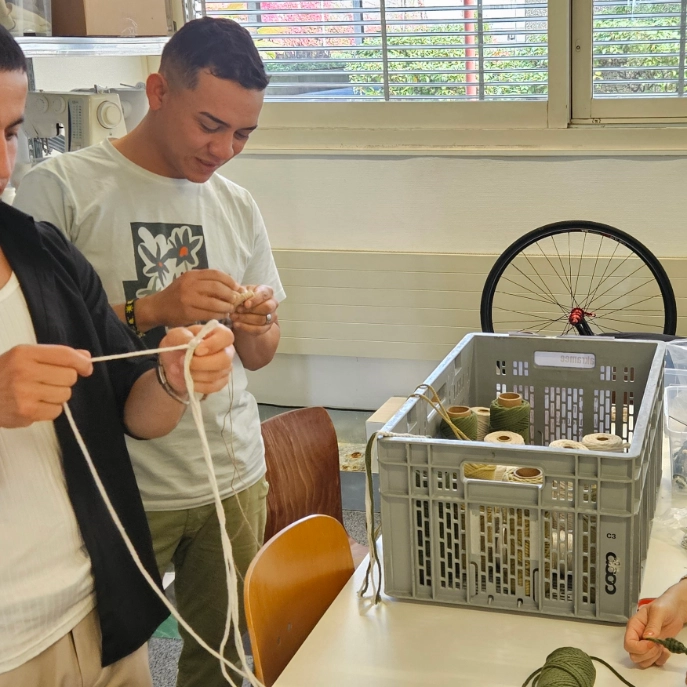Asylum Social Services
The Asylum Social Services (SDA) Department within the Social Welfare Office is responsible for providing advice, care, support and accommodation to individuals and families seeking asylum, refugee status, hardship assistance and emergency aid.

Topics
The Asylum Social Services Department (SDA) within the Cantonal Social Welfare Office is responsible for providing advice, support, assistance and accommodation to individuals and families seeking asylum, refugee status, hardship assistance and emergency aid across the canton of Zug.
Schalteröffnungszeiten:
Montag bis Freitag
09.00 - 11.45 Uhr
13.30 - 16.30 Uhr
Dienstagvormittag und Freitagnachmittag geschlossen.
Telefonbedienzeiten:
Montag bis Freitag
08.00 - 11.45 Uhr
13.30 - 17.00 Uhr
About us
In compliance with the Federal Asylum Ordinance, the canton of Zug is allocated 1.5% of all asylum seekers in Switzerland. For more information, please refer to our latest publications.
Since 2009, the canton has been the central authority responsible for providing accommodation, care and funding for asylum seekers and refugees.
In order to carry out this task efficiently, the Asylum Social Services Department is organized into three divisions:
The Integration and Case Management section consists of the following six teams: Social Counselling 1 and 2, Administration of Integrated Case Management, Vocational Integration, Housing Support and Volunteer Coordination.
The section supports temporarily admitted persons and recognized refugees in their linguistic, vocational and social integration and provides guidance on issues related to living and coexistence. The coordination of volunteer assignments, which contribute to faster social integration, is also the responsibility of the Integration section.
The Accommodation and Care department ensures that all assigned persons have a roof over their heads, a bed to sleep in, and are cared for. This is organized decentrally in the canton's various cantonal accommodations.
The cantonal accommodations are supported by the real estate team, which is responsible for maintenance, as well as for the acquisition/examination of new properties.
Do you own a property and would like to rent it to the SDA for people in the asylum and refugee sector? Then please contact info.asyl@zg.ch.
Central Services is responsible for the support processes of the SDA. This includes the following topics: accounting, statistics, administration of social insurance, as well as the secretariat and reception area of the SDA.
Management
Christian Murbach
Abteilungsleiter Soziale Dienste Asyl
6300 Zug

Team
René Burkhalter
Bereichsleiter Unterbringung & Betreuung
6312 Steinhausen
Matthias Hermann
Bereichsleiter Integration & Fallführung
6300 Zug
Swisjan Amirthalingam
Co-Leiter Zentrale Dienste
6312 Steinhausen
Irene De Almeida Campos
Co-Leiterin Zentrale Dienste
6312 Steinhausen
Organization chart
Organization chart Asylum Social Services
Legal bases
Every action we take as Asylum Social Services is guided by a solid legal framework. The laws and regulations form the basis for our actions, determining what we can and cannot do. Compliance with these laws is essential for ensuring that all our clients are treated lawfully and equitably.
Below are the laws, regulations and our S Protection Status brochure that guide our work:
News
Feb 19, 2026
PRESS RELEASE
Kanton Zug führt Bezahlkarte im Asylbereich ein
Damit werden Unterstützungsleistungen in der Asylsozialhilfe und in der Nothilfe konsequent auf den täglichen Bedarf ausgerichtet und Zweckentfremdungen erschwert.
Feb 5, 2026
PRESS RELEASE
Unabhängige Bedarfsabklärung: mehr Selbstbestimmung für Menschen mit Behinderung
Die unabhängige Bedarfsabklärung für stationäre Leistungen stellt sicher, dass diese konsequent am individuellen Bedarf und an der Selbstbestimmung von Menschen mit Behinderung ausgerichtet werden.
Jan 22, 2026
PRESS RELEASE
Kanton Zug übernimmt rund einen Drittel der Kinderbetreuungskosten
Der Kanton Zug beteiligt sich ab August 2026 pauschal mit 33 Prozent an den Betreuungskosten in Kitas und Tagesfamilien. Mit dieser Kantonspauschale werden Familien finanziell entlastet.


